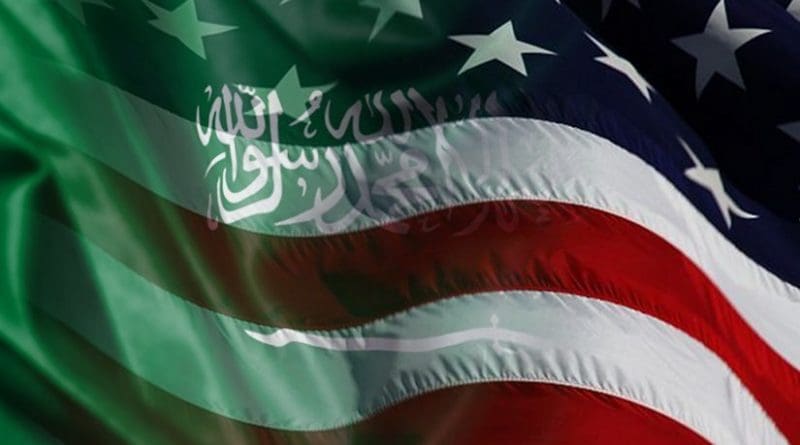Dirty Ties: The University Of New Haven And Saudi Arabia – OpEd
It’s a relationship of dirty toxicity, but these abound when universities establish ties with regimes and certain entities. These might take the form of investments. Or they can become matters, somewhat euphemistically, of intellectual exchange.
Certainly, for some figures such as the president of the University of New Haven, Steven H. Kaplan, an agreement with King Fahd Security College in Riyadh to develop a baccalaureate security studies program is an opportunity to advance rather than hinder the college’s reputation.
In June last year, the Office of Marketing and Communications at New Haven noted the agreement which involved “experts from UNH’s Henry C. Lee College of Criminal Justice and Forensic Sciences [advising] their counterparts at KFSC on the creation and accreditation in the Kingdom of a baccalaureate degree in security studies with three specialization tracks: criminal justice, homeland security and intelligence studies.” [1]
These tracks should have been alerts of note to those dealing with the Kingdom of Saudi Arabia. Instead, there was only propagandistic and effusive praise. In Kaplan’s words, “We are excited to put the University of New Haven’s world-renowned programs in criminal justice, national security, and forensic studies at the service of the Kingdom of Saudi Arabia’s next generation of security professionals.”[2]
The words of UNH provost, Daniel May, were ones of enthusiastic inculcation for the Kingdom’s future police and security recruits. America-made was finding its way to the Middle East. “We’re very pleased to be developing with the ministry an American-styled program.”[3]
Educating the Saudi elite in the US education market has not always been a smooth affair. The attacks of September 11, 2001, ones dominant with Saudi inspiration, made matters distinctly harder, and in some cases impossible, for students from the Kingdom to avail themselves of US colleges. In 2004, a mere 1,000 students were studying in the US.
By 2012, the trend had been well and truly reversed: 66,000 Saudi students had found positions at all degree levels. Not only was the United States doing business with Riyadh in terms of armaments and weapons; it had found a lucrative market in the form of education. It all seemed to fall rather neatly into place under the terms of Saudi-US Technical Cooperation Agreement of 2008. It might even be said that such entities as UNH were being patriotic in their pursuits.
These trends are all well and good when read against the basic need for enlightened education. But UNH’s agreement has far more sinister implications, peering deeply into the intricate links between security, repression and justification. Enlightened torturers and punitive police officers still remain torturers and punitive.
Kaplan’s point here renders the relationship rewarding yet benign, ignoring a great US tradition: educating the despots, torturers and functionaries of distinctly unenlightened regimes:
“This agreement deepens longstanding bilateral educational cooperation between the United States and the Kingdom of Saudi Arabia, and we are honoured to support the further development of security expertise upon which so many in the region and beyond depend.”
The deal has not gone unnoticed in academic and activist circles. The Coalition to End the US-Saudi Alliance, founded in New York City in 2015, has issued a petition calling for the cancellation of security training of Saudi students by UNH.[4]
An open letter to Kaplan signed by over 40 academics and activists has similarly called upon the university to “immediately terminate this program” given the Kingdom’s consistent record as a “serial human rights violator” and aggressor in the Yemen conflict. “With a regime that sees all dissent as illegitimate UNH staff will unavoidably be helping the regime stamp out movements for democracy.”[5]
US pedagogues and trainers in the security field have come from an array of institutions, one of the most notable being the Central Intelligence Agency itself. Various countries have received the expertise of their wise, body shattering instruction over the decades. During the first term of the Reagan administration, to take a grizzly example, the CIA supplied its techniques and coercive wisdom to no less than five Latin American governments.
During the 1970s, Operation Condor became something of an overly stacked school for torturers and enthusiastic sadists, with US forces working, as J. Patrice McSherry describes it, “behind the scenes with Latin American military and intelligence forces that comprised the Condor Group, providing resources, administrative assistance, intelligence and financing.”[6]
In 1983, the agency published a manual instructing foreign agents on how best to extract information from individuals without removing the finger nails. Care had to be taken to achieve results; unnecessary effort need not be expended in the venture. “While we do not stress the use of coercive techniques, we do want to make you aware of them and the proper way to use them.”
In some ways, these manuals, and the personnel who came with them, tie in all too neatly with the security complex universities such as UNH conform to. Universities, notably in the states, have become corporate giants, investors and collaborators, be it in arms markets, espionage or warfare.
The language of agreements between universities and their foreign government partners is superficially sterile, even dull, concealing the obvious sinister point of regime politics and practices. There is the crude issue of “skills transfers”. There is a technology incentive. Profits are to be made, even if they come from sources bloodied and repressed. However one turns the head, money leaves its speech, its indelible imprint.
Nor are officials such as the UNH provost ignorant of the darker side of such agreements. As May explained to the Associated Press, the university had been negotiating the agreement over the course of eight years, where “the two sides worked through cultural differences, the time difference and concern about human rights.” Nothing like money to taper over such differences.
Notes:
[1] http://www.newhaven.edu/news/releases/2015-2016/king-fahd-security-college-and-unh-sign-collaboration-agreement.php/
[2] http://www.newhaven.edu/news/releases/2015-2016/king-fahd-security-college-and-unh-sign-collaboration-agreement.php/
[3] http://m.newsok.com/article/feed/1022184/amp
[4] http://www.saudius.org/tell-unh-to-end-their–security–program-in-saudi-arabia.html
[5] http://www.saudius.org/letter-to-unh-administration-sept-2017.html
[6] https://books.google.com.ec/books/about/Predatory_States.html?id=2eFHAAAAYAAJ&redir_esc=y&hl=es-419

